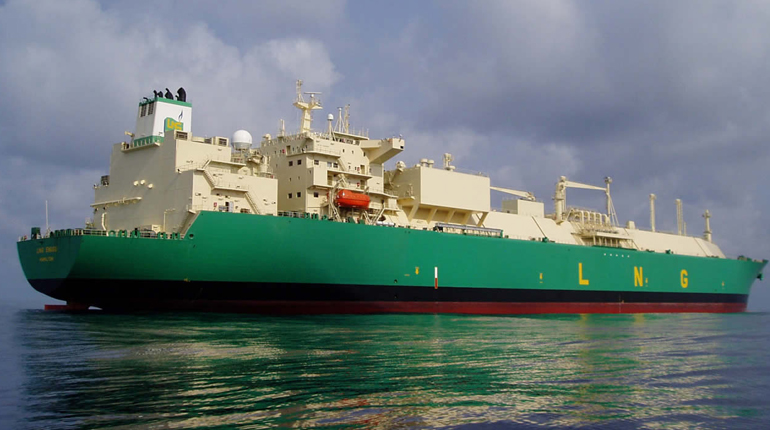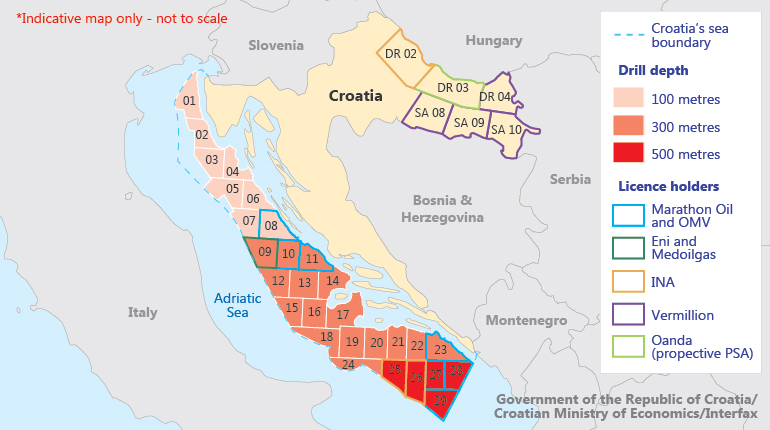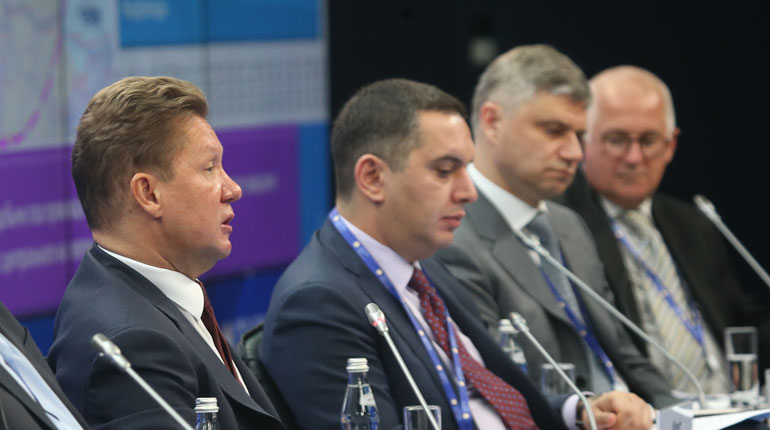 Eni has been sending its volumes from Nigeria LNG to Japan and South Korea. (NLNG)
Eni has been sending its volumes from Nigeria LNG to Japan and South Korea. (NLNG)
Italy is advancing talks with Pakistan to secure a government-to-government LNG contract. Rome has nominated Eni to supply the LNG, but the company will face stiff competition from France’s Engie as well as companies from China and Malaysia.
Aemen Maluka, executive director and founder of the Pakistan-based energy law firm Josh and Mak International, told Interfax Natural Gas Daily Eni has "a good chance" of securing the contract, based on its previous track record in Pakistan’s energy sector.
Eni has onshore permits in Pakistan that produced around 45,000 barrels of oil equivalent per day in 2014 – most of which was gas. The company has shown a willingness to supply up to 3 mtpa of LNG. Pakistan’s gas shortage is around 56.6 million cubic metres per day (MMcm/d), and if the country continues to rely on imported LNG the gap between demand and production could reach 240.7 MMcm/d – equivalent to 60 mtpa – in the next 10-15 years, according to Maluka.
However, Andy Flower, an independent LNG consultant, voiced uncertainty over some of Eni’s future supplies, saying Pakistan could be better off sourcing volumes from elsewhere.
"I was surprised to see Eni’s name mentioned as a possible supply source. It has had some LNG trading activity recently, which I think has been mainly based on Nigerian output. However, most of its long-term supply is in the ‘uncertain’ or ‘potential’ category," Flower told Interfax Natural Gas Daily.
Eni has a long-term contract with Nigeria LNG for 1.15 mtpa. Volumes were originally planned to be delivered to Spain, but were recently traded under short- or medium-term contracts with Tepco and Chubu Electric in Japan, and South Korea’s Kogas. "I am not sure how much of [the LNG Eni] is lifting given the gas supply and other problems the project is facing," Flower said.
Through its 50% share in Union Fenosa Gas, Eni had access to 60% of the output from SEGAS LNG in Egypt, but the project is now closed indefinitely. However, the company’s Zohr field could lead to a restart of SEGAS in the future. According to Flower, it is also unclear how much access Eni has to its 1.65 mtpa from Oman LNG (also through Union Fenosa), which is producing below capacity.
Eni holds a 13.6% stake in Angola LNG – which is restarting – but that does not seem to give it any access to output other than bidding in tenders, Flower said. Therefore, France’s Engie might be a better bet for Pakistan, he added.
Engie is making a second bid to secure a supply deal with Pakistan. The company, formerly known as GDF Suez, partnered with Netherlands-based 4Gas in 2006 to build Pakistan’s Mashal LNG terminal, but it was scrapped amid allegations of corruption
However, Engie may also suffer from potential weak points in its supply sources. The company holds a 5% stake in Train 1 of the Egyptian LNG project and a supply contract with Yemen LNG, both of which have had their supplies disrupted. But the company will have 4 mtpa available from Cameron LNG in the United States from 2018/2019, Flower noted.
Maluka said the price will remain the main issue in negotiations and could lead Eni to walk away from the deal. Political instability will also be a factor in Pakistan.
Pakistan is insisting on a benchmark of 13.37% of the price of Brent crude oil – as agreed with its previous and ongoing suppliers, Gunvor and Qatargas – and is not prepared to pay more.
If neither European player agrees to the price, Maluka suggested sellers such as China’s Sinopec, Malaysia’s Petronas and Russia’s Gazprom could take centre stage.
Eni upping its market presence
Thomas Wigley, a partner at law firm Trowers & Hamlins, expects that, even if Eni does not secure the Pakistan deal, the company will become more active in LNG markets before a possible FID on its Mozambique export plant.
Eni is developing a 10 mtpa onshore LNG plant in Mozambique, on which it had planned to make an FID in early 2016. However, given the uncertain global LNG market and the slow government approval process, further delays are expected. For now, the company is focusing on the development of its smaller Coral FLNG project.
Pakistan, Jordan and Egypt are becoming more important to LNG suppliers and are seen as the main growth opportunities in the LNG market, especially now large volumes of new capacity are entering the market.
"There are also other potential new entrants to the LNG market – for example Bangladesh, Morocco and several West African countries – which have recently stated their intention to import LNG," Wigley said.
"We can expect there to be significant competition to secure these new markets, as traditional buyers – such as the Japanese utilities, Korea’s Kogas and others – are not as active as they were a few years ago," Wigley added.
Eni sold 13.5 billion cubic metres of gas as LNG in 2015, up by 200 MMcm from the amount it sold in 2014.








Talk to us
Natural Gas Daily welcomes your comments. Email us at [email protected].